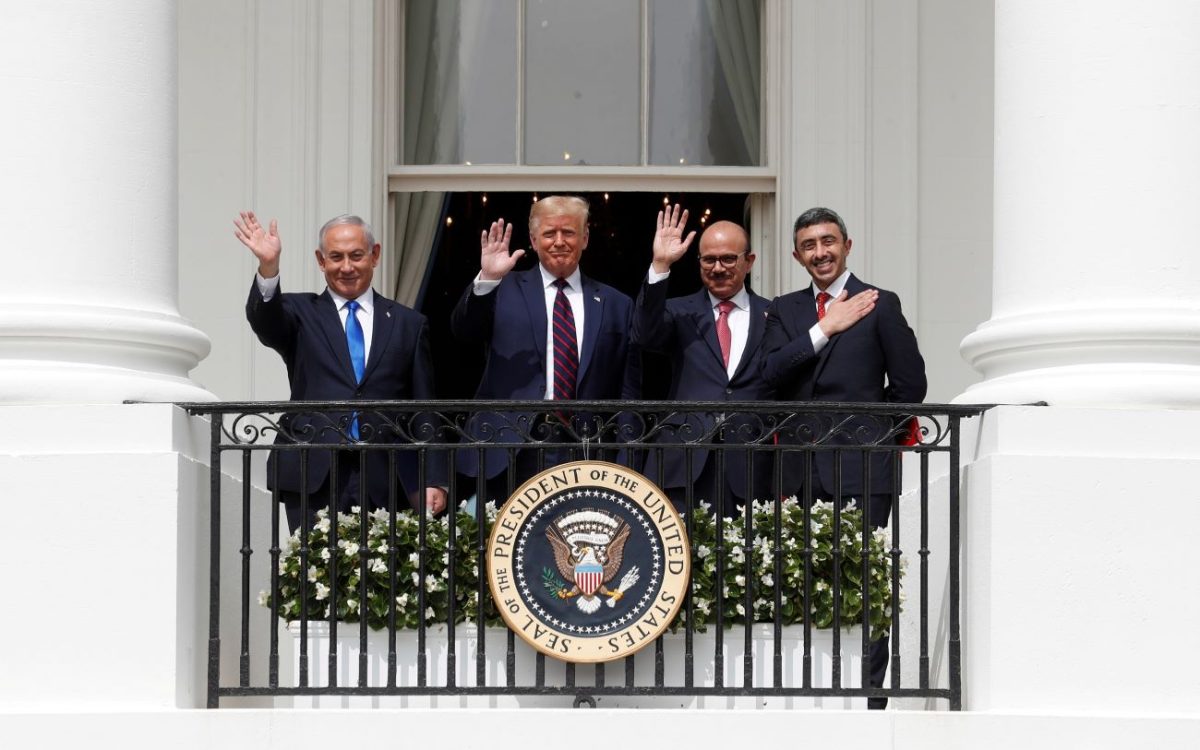The United Arab Emirates (UAE), Bahrain, Morocco and Sudan established official ties with Israel as part of US-brokered Abraham Accords in 2020.
According to the latest surveys, only 27 percent of respondents in the UAE and 20 percent in Bahrain viewed the accords as positive for the region.
That compares with 47 percent and 45 percent in 2020 when the accords were billed as part of a process that may encourage Israel to also work on its conflict with the Palestinians.
In Saudi Arabia, which has not normalised relations with Israel amid a push by Washington for the kingdom to follow in its neighbours’ footsteps, support for the accords also fell by half to 20 percent.
Earlier this year, Saudi Arabia’s Foreign Minister, Prince Faisal bin Farhan, stated the kingdom will not normalise relations with Israel until Palestinians are granted statehood.
“True normalisation and true stability will only come through giving the Palestinians hope. Through giving the Palestinians dignity, and that requires giving the Palestinians a state,” he said on the sidelines of the World Economic Forum in Davos, Switzerland, earlier this year.
Following the report, Anna Jacobs, a senior Analyst on Persian Gulf states at the Crisis Group, said that too often public opinion in [Persian] Gulf countries is underestimated as a factor in government decision making.
“Public opinion matters more to the calculations of leaders in the [Persian] Gulf than many observers think,” she added, commenting on the findings and any potential rapprochement between Israel and Saudi Arabia.
The normalisation deals have also exposed the limitations of any potential benefits that Persian Gulf countries expected to receive, particularly in the case of the UAE.
At the time of the deal between Israel and the UAE, the accords allegedly included a “secret clause” for the US to sell F-35 fighter jets to Abu Dhabi.
Normalisation between the two sides was expected to pave the way for the sale of US fighter jets and advanced drones to the Persian Gulf country.
Crown Prince Mohammed bin Zayed, the president of the UAE, had allegedly insisted that the “multi-billion-dollar arms sale” should be part of the deal, according to report by the Israeli Ynet news outlet citing US and Emirati sources.
By December 2021, the UAE halted talks on a $23bn weapons package that would have included the sale of F35s, drones and other munitions after the Joe Biden administration added requirements.
According to reports, the Americans wanted the UAE to cancel the use of Chinese-made Huawei 5G technology in the emirate, something the UAE was not prepared to do.
Israeli policies in the occupied Palestinian territories have also had an impact on the supposed political benefits of the accords.
Regular Israeli raids in the West Bank in the last two years have resulted in increased tensions in the region as the far-right government of Prime Minister Benjamin Netanyahu seeks to exert greater control on the occupied territories.
At least 202 Palestinians have been killed by Israeli fire this year, including 35 children – a rate of nearly one fatality per day.
A total of 165 people have died in the West Bank and East Jerusalem, making 2023 one of the bloodiest years in the occupied Palestinian territories. Another 36 people were killed in the Gaza Strip.
Israeli actions have also exposed the Persian Gulf countries to criticism that on the Palestinian front they have achieved little in restraining Israeli actions.
Despite support for the accords plunging in Persian Gulf states, trade between the two sides is however on the rise.
In 2022, bilateral trade between Israel and the UAE hit $2.6bn, with that number expected to go up to $3bn this year according to Israeli figures.
Since the accords were signed, more than a million Israelis travelled to the UAE although that has very much been a one-sided trend, with few people from the Persian Gulf looking to travel the other way.
